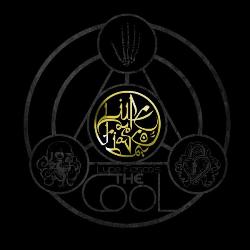
Lupe Fiasco
Lupe Fiasco’s The Cool
Atlantic
Rating: 




Lupe Fiasco isn’t above recycling ideas. If Lupe Fiasco’s Food & Liquor had a tone reminiscent of Kanye West’s Late Registration, then Lupe Fiasco’s The Cool opens with “Go-Go Gadget Flow,” a bounce rap with a title similar to Gnarls Barkley’s “Go-Go Gadget Gospel.” Even the cover art looks like Thrice’s artwork for The Alchemy Index Vols. I & II, which was released over a month before The Cool. For all of his brazen originality, which he demonstrates on The Cool in spades, Lupe sometimes has difficulty thinking outside of the box.
It is possible to enjoy The Cool without having to pick apart its central concept, a moralistic tragedy about a fledging MC selling his soul to the devil for success. It takes a close listen reveal that these songs aren’t necessarily coming from Lupe himself, but a third character he has created: Michael Young History, a.k.a. the Cool. On “The Coolest” he makes clear the Cool’s descent into a deal with the Streets. “She said she’d give me greatness/Status/Placement over the others/My face would grace covers of the magazines of the hustlers/Paper the likes of which that I had never seen/Her eyes glow green with the logo of our dreams,” he raps. Subsequent cuts such as “Superstar,” a somewhat pretentious arena rap that oddly grows more appealing with repeated plays, subtly twist Lupe’s themes on fame to reflect the Cool’s increasingly distorted perspective. As the Cool collapses in a hail of bullets (“The Die”), loses his soul to the Streets’ master the Game (“Put You on Game”), and turns into a zombie (“Fighters”), Lupe walks a thin line between full-blown conceptualism and accessible, personal songwriting with remarkable skill.
The music, mostly produced Soundtrakk, reflects Lupe’s ambitions to make hip-hop that rocks on a scale similar to Coldplay and Radiohead. (On “Hello/Goodbye,” a breakbeat track produced by UNKLE, Lupe even sing-raps in a flat, nasally vocal similar to Tool’s Maynard Patrick Keenan.) The keyboard notes are watery and amorphous; “Paris, Tokyo” even approaches the softness of contemporary jazz. That Soundtrakk would take his cues from Coldplay’s piano cheese testifies to the cross-cultural appeal of the latter’s soothing, comforting sounds. Still, a funky guitar lick or some noisy dissonance would be nice. However, when compared with his overwrought, string-laden miasmas on Food & Liquor, Soundtrakk actually shows some restraint. Despite its sickly sweet grooves, “Paris, Tokyo” is a nice breezy song about love and international travel. The haunting, “Intruder Alert” could have been made during the early 90s, the era of kitchen-sink dramas such as 2Pac’s gangsta rap ballad “Brenda’s Got a Baby, as Lupe rhymes about a woman recovering from rape.
The Cool is a bravely ambitious album, but it’s not a great one. It often threatens to tumble from the weight of its bombast. “Little Weapon,” a song Patrick Stump from Fall Out Boy produces with a heavy emphasis on pounding percussion and glittery xylophone effects, brings surprising life to The Cool’s lumbering prog hip-hop. For the most part, that sort of lightness is sorely lacking here, even if The Cool’s overwhelming portentousness yields some small rewards such as “Superstar” and “Gotta Eat,” the latter an effective ode to the code of the Streets.
Above all, The Cool reflects the danger of being a deliberate strategist who sacrifices little to raw naturalism. (See the self-proclamatory “Dumb It Down” for proof.) To be fair, hip-hop stars tend to be too aware of their supposed superiority, and all too ready to proclaim whatever they do as a masterpiece or a classic. Contrary to most of his peers, Lupe is truly a vivid and fascinating MC and, sometimes, an innovative theorist. The only thing holding him back is self-consciousness.

